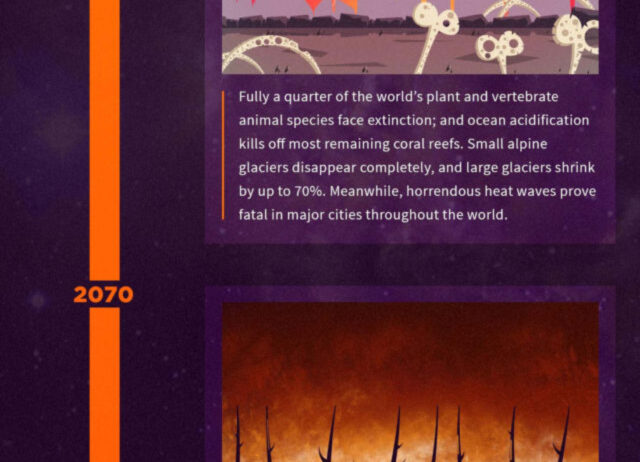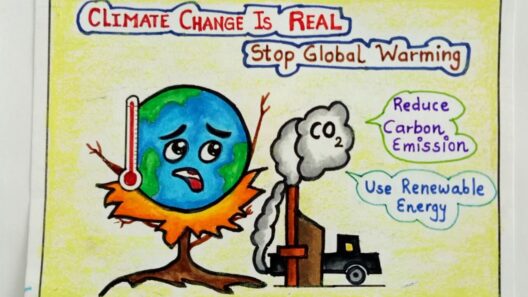In the grand tapestry of Earth’s climate, the threads woven by petroleum are both profound and perilous. The very lifeblood of modern civilization, oil has propelled humanity into an era of unprecedented technological advancement and economic prosperity. However, this boon comes at an insurmountable cost—an ever-increasing toll on our environment and an accelerating march towards a tumultuous climatic future.
If petroleum is likened to a double-edged sword, then humanity swings it blithely, oblivious to the consequences of its thrust. As we unleash the power of oil, we simultaneously expel torrents of carbon emissions into the atmosphere, a veil of greenhouse gases that thickens each year. The once-innocent act of refining crude oil has metamorphosed into a cataclysmic dance of destruction, where every lit barrel ignites a pathway to ruin.
At the core of this environmental malaise lies the combustion engine, a magnificent artifice that has made transportation swift, but at a cost that is canny and sinister. The internal combustion engine has sputtered forth not just exhaust, but a barrage of pollutants that tarnish our air, leading to health consequences that echo in cities across the world. Airborne particulates not only exacerbate respiratory ailments but leave a trail of despair in their wake. Each puff of smoke is a reminder of the sacrifice made at the altar of convenience.
The extraction process of oil itself reveals another layer of peril. The drilling and fracking for petroleum represents an affront to the integrity of Earth’s crust. Each well punctures the ground’s surface, often unleashing not just oil but also a cocktail of harmful substances. Contaminated groundwater seeps into ecosystems, wreaking havoc on aquatic life and leaving communities grappling with toxified resources. For a sheer moment of convenience, landscapes are rendered barren and unusable—a trade-off that is one-sided and ludicrous.
Moreover, the transportation of crude oil and its derivatives carries with it the specter of spills and disasters. When a tanker is compromised, it is not merely an inconvenience; it is an environmental catastrophe. The infamous Deepwater Horizon spill of 2010 serves as a jarring testament to how a single event can disrupt fragile ecosystems for decades. Oil coats the feathers of seabirds, destroys marine habitats, and causes a ripple effect that unfurls throughout food chains. The specter of petroleum haunts the oceans, suffocating marine life in a viscous grip.
The very foundation of our planet’s climate system is being remolded by our dependence on fossil fuels. The increased greenhouse gas concentrations are trapping heat in the earth’s atmosphere, a process akin to wrapping our planet in a warming blanket. This has led to a cascade of natural calamities—extreme weather patterns, rising sea levels, and unprecedented heatwaves. The old adage of the Earth fighting back rings ever true; it appears that the planet’s resilience is waning as evidence of climate change becomes more irrefutable.
Climate refugees are emerging from the shadows of society, compelled to abandon their homes due to oil-induced environmental degradation. Coastal cities face the demise of their shores; agricultural zones are rendered fallow under the relentless gaze of a warming sun. The phenomenon of desertification is spreading, leaving behind parched earth where verdant crops once flourished. It is a grim reality that reminds us that the consequences of our actions extend far beyond our immediate surroundings.
The allure of petroleum is woven into the fabric of our daily lives, from the fuels that power our vehicles to the plastics that encase our conveniences. However, this pervasive presence fosters dependency that is as comforting as it is dangerous. Society finds solace in the status quo, yet the ticking clock of climate change vibrates louder with each decade. The transformation toward renewable energy sources is not merely a choice; it is a necessity for the survival of future generations.
Transitioning to renewables requires not just a change in energy sources but also a seismic shift in our societal norms and expectations. As we stand on the precipice of a new energy era, individuals, corporations, and governments must unify in action against the monopolistic tendencies of the fossil fuel industry. The proliferation of solar panels, wind turbines, and other renewable technologies must now be nurtured with urgency, fostering sustainable practices that respect the integrity of our ecosystems.
In this battle against climate change, education plays a litigious role. By unveiling the intricacies of petroleum’s peril, we equip citizens with the knowledge to challenge the status quo. Awareness breeds advocacy, and as individuals awaken to the real ramifications of their consumption, they become catalysts for change. The relentless quest for information ignites a spark that can illuminate pathways to sustainable living.
Our warming world demands an alignment of moral compass and corporate responsibility. The challenge lies in forging a new narrative around energy consumption that celebrates innovation while honoring ecological harmony. Embracing this transition is not simply a boon to the environment but a renaissance for humanity itself. It rekindles the flame of imagination, inspiring creativity in technological solutions that can harmonize industry with environmental stewardship.
The dire plight of our atmosphere paints a vivid backdrop against which this drama unfolds. Petroleum’s peril, with its myriad consequences, serves as both a warning and a lesson. The time for reflection is now. Confronting the formidable specter of oil’s dominance requires bravery, audacity, and resolute determination. It is through collective action that we can redefine our relationship with energy, paving the way for a sustainable future that honors both humanity and the precious planet we call home.







